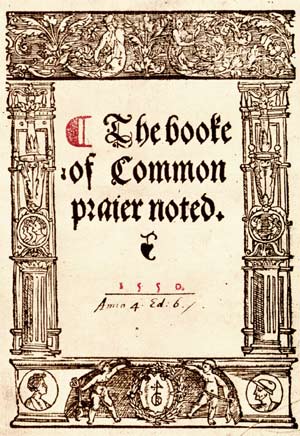Apparently the Episcopalians are thinking of updating the Book of Common Prayer (1979) and we got a brief preview of what that book might look like from The Rev. Ruth Meyers, Hodges-Haynes Professor of Liturgics at Church Divinity School of the Pacific since 2009 and the one who led the Standing Committee on Liturgy and Music from 2009 to 2015. You can read about it here.
Meyers urged continuing use of “expansive language” for God,
including a return to “more concrete images of the Bible and the
liturgy” in place of the arcane philosophical language of the
fourth-century creeds. The texts of the 1979 book, while using a more
inclusive language for humanity, are “overwhelmingly masculine in
language and imagery.”
She described the Nicene Creed as “a stumbling block for many,” and
wondered if a creed is necessary during the Eucharist, given the Great
Thanksgiving’s robust affirmation of God’s work in Christ. The use of
modern creedal texts alongside the Nicene Creed might be a creative
opportunity for engaging worshipers.
She also commended a proposal of allowing communion of the unbaptized only as part of a
congregation’s coordinated evangelistic plan, oriented toward growth in
discipleship.
While it is good to hear the desire to return to concrete Biblical images it is certainly a foreboding statement that the language of the fourth century creeds is arcane philosophical language that ought to be replaced or that modern creedal texts (whatever they are) should be used alongside the Nicene Creed. As an aside, creeds are not there to engage worshipers but to confess the orthodox faith.
And then there is the desire to commune the unbaptized. We have heard rumblings of this in the ELCA so it is not surprising that we would encounter it in the Episcopal Church (a full communion partner of the ELCA). That said, it is the most serious breach of faith with catholic doctrine and practice to suspend baptism as the primary requisite of those admitted to the Lord's Table. Certainly those who would follow this practice are separating themselves from the historic shape of Christian teaching and life to the present day. But then these are the same bodies who have fully welcomed GLBT folks and already distinguished themselves from those who went before them.
Just a few thoughts as a church body is prepared to update the Book of Common Prayer, for a church body that once defined its unity more or less by the BCP and less by the faith confessed in it. So we have no reason to doubt that the liturgical changes Meyers spoke of either portend or reflect the changes in belief that have already taken place.

3 comments:
Please keep in mind that the ECUSA is a fully heathen group, totally unconnected to Jesus Christ and bent on doing things their way. They have completely broken continuity with the Church, and stand alone, very alone (well, with some Lutherans, Methodist, Presbyterians, etc.) The point is, they do not stand with Jesus Christ.
They have carefully retained the bathwater while tossing out the baby. The feel themselves totally unconstrained by the Church of the past, the Bible, the words of Christ, or anything else. Don't stand too close to them.
Fr. D+
Continuing Anglican Priest
Of course they want ot commune unbelievers, as they're running out of believers between loss of conservatives and deaths of superannuated libs. Then again, considering what passes for belief in TEC, they've been communing unbelievers for years.
Fr. D+: "Please keep in mind that the ECUSA is a fully heathen group, totally unconnected to Jesus Christ and bent on doing things their way."
In that case, they fit well with their partner religious body, XXXA, which has been declared by the LCMS Commission on Theology and Church Relations to be "embodying apostasy from the faith once delivered to the saints."
Post a Comment